Publications
 We author and publish a range of resources to keep you up to date with the latest developments in employment, labour market and human resource policy and practice.
We author and publish a range of resources to keep you up to date with the latest developments in employment, labour market and human resource policy and practice.
All our pdf publications are free to access.
Search results
-
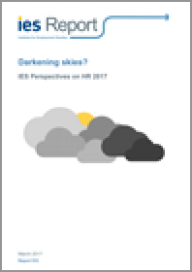
Darkening skies? IES Perspectives on HR 2017
Mar 2017 | Institute for Employment StudiesIn acknowledgement of current turbulent times, the Institute has published a collection of articles addressing today’s pressing issues for organisations. Pulling together existing research and their own insights and experiences from working with organisations, the team of researchers and consultants have offered their reflections on how leaders and HR practitioners can successfully navigate the imminent challenges.
-
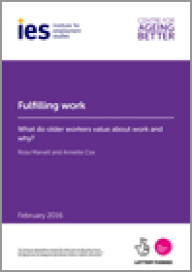
Fulfilling work: What do older workers value about work and why?
Marvell R, Cox A | Feb 2017 | Centre for Ageing BetterThis report presents the findings of research conducted by IES on behalf of the Centre for Ageing Better into what workplace and job-related factors make employment fulfilling for older workers.
-
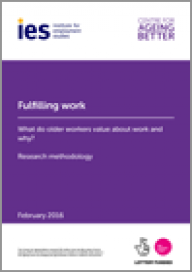
Fulfilling work: What do older workers value about work and why?: Research methodology
Feb 2017 | Centre for Ageing BetterThis paper outlines the research methodology used to identify evidence on what older workers value about work. The findings from this research, conducted by IES on behalf of the Centre for Ageing Better, are presented in the accompanying evidence briefing.
-

Post-Brexit immigration systems and the impact on skills and labour supply: Update January 2017
Marangozov R | Feb 2017 | Institute for Employment StudiesRachel Marangozov, senior research fellow at IES, offers an update for the IES Brexit Observatory on how employers and the government could meet skills and labour needs in the absence of freedom of movement.
-
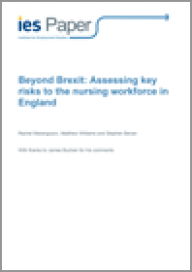
Beyond Brexit: Assessing key risks to the nursing workforce in England
Marangozov R, Williams M, Bevan S | Dec 2016 | Institute for Employment StudiesIES paper offering new data analysis on the impact of Brexit and population growth-related demand for health services on the NHS and the UK's nursing workforce.
-
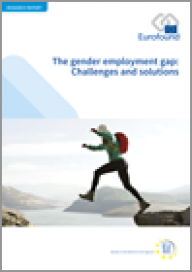
The gender employment gap: Challenges and solutions
Mascherini M, Bisello M, Rioboo Leston I | Oct 2016 | European Foundation for the Improvement of Living and Working ConditionsThis report containing IES research considers the main characteristics and consequences of gender gaps in labour market participation, employment and economic status.
-
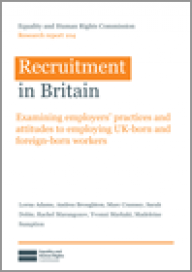
Recruitment in Britain: Examining employers' practices and attitudes to employing UK-born and foreign-born workers
Broughton A, Adams L, Cranney M, Dobie S, Marangozov R, Markaki Y, Sumption M | Oct 2016 | Equality and Human Rights CommissionThis IES report examines attitudes and experiences of both employers and employees with regards to the recruitment of foreign-born workers in the UK.
-

Post-Brexit immigration systems and the impact on skills supply
Marangozov R | Oct 2016 | Institute for Employment StudiesIn a video interview for the IES Brexit Observatory, Rachel Marangozov considers the issues that a post-Brexit immigration policy needs to address and how such a system would impact on the UK labour market.
-
📄
Podcast: Gender pay gap reporting: full analysis and insight
Brown D | Jul 2016 | Institute for Employment StudiesDuncan Brown's debrief podcast for IES HR Network event 'Gender pay gap reporting: full analysis and insight'.
-
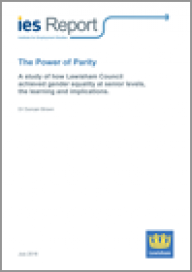
The Power of Parity
A study of how Lewisham Council achieved gender equality at senior levels, the learning and implications
Brown D | Jul 2016 | Institute for Employment StudiesWith a near-equal gender mix at the top of their organisation, Lewisham Council have successfully overcome the continuing gender pay and position inequality that still persists in many organisations across the UK. A new IES report investigates how Lewisham, with 56 per cent of those in senior grades female and a pay gap slightly in favour of women, have achieved this.
